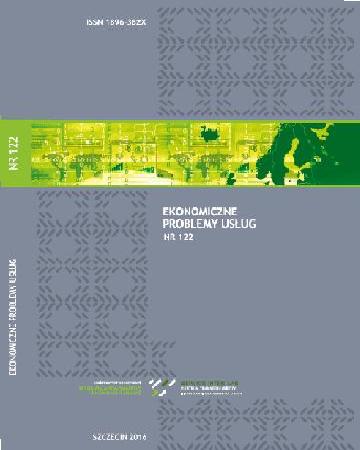
ISSN: 1896-382X
eISSN: 2353-2866
OAI
DOI: 10.18276/epu.2018.131/2-24



Issue archive /
nr 131 (2) 2018
Nowe technologie w Polskim Związku Łowieckim
(NEW TECHNOLOGIES IN THE SOCIAL AND EDUCATION SPHERES ON THE EXAMPLE OF THE POLISH HUNTING ASSOCIATION)
| Authors: |
Marek
Matulewski
Wyższa Szkoła Logistyki Katedra Nauk o Zarządzaniu. |
| Keywords: | integrated IT system e-learning information age wildlife management wild game management |
| Data publikacji całości: | 2018-05-12 |
| Page range: | 10 (255-264) |
| Klasyfikacja JEL: | O33 |
Abstract
The aim of the work is to characterize and analyze the role of new technologies in the social and educational spheres in the information age. The scope of the work covers the analysis of the national and foreign literature on the subject of currently applicable patterns in this field on the one hand, and both internal and external legal and quasi-legal restrictions on the other hand. In this respect, the application of a new, integrated IT system implemented by the Polish Hunting Association seems to be extremely important (in addition to the conducted wild game management, as well as educational and scientific activities). The analysis of the pertinent literature and case study were adopted as a research methods. The research hypothesis was put forward: “The application of new technologies in the social and education spheres affects the efficiency of activities carried out in its scope”. On the basis of the conducted research, it was possible to draw conclusions, which clearly show that the application of new technologies in that respect increases the effectiveness of conducted activities (especially in the aspect of the need for continuous training). The paper presents only an overview of the selected literature on the subject, which may provide some introduction to pilot studies. It takes into account a practical aspect that firstly allows to verify the hypothesis, and secondly does not give grounds for generalizations concerning wildlife management (as part of the activities conducted by the Polish Hunting Association). As a result, the research should be continued to analyze the entire scope of the wildlife management and possible applications of the integrated IT system in that area.
Download file
Article file
Bibliography
| 1. | Beniger, J. (1986). The Control Revolution: Technological and Economic Origins of the Information Society. Cambridge, Massachusetts, and London: Harward University Press. |
| 2. | Budziewicz-Guźlecka, A. (2010). Istota wykluczenia społecznego w społeczeństwie informacyjnym. Prace Naukowe Uniwersytetu Ekonomicznego we Wrocławiu. Informatyka Ekonomiczna, 17 (118), 241–249. |
| 3. | Drab-Kurowska, A. (2011). Wykorzystanie technologii informatycznych w komunikacji marketingowej. Zeszyty Naukowe Uniwersytetu Szczecińskiego. Ekonomiczne Problemy Usług, 68/2, 674–681. |
| 4. | Gawin, P., Durbas-Nowak, D., Pełka, J., Bogacz, D., Dudkiewicz, D.K. (2015). Łowiectwo. Tradycje, Prawo, Zwierzyna, Warszawa: Wydawnictwo SBM Sp. z o.o. |
| 5. | Hilbert, M. (2015). Digital Technology and Social Change. Pobrane z: https://www.youtube.com/ watch?v=xR4sQ3f6tW8&list=PLtjBSCvWCU3rNm46D3R85efM0hrzjuAIg. |
| 6. | Kamieniarz, R. (2011). Wizerunek uczciwego. Łowiec Polski, 2, 36–41. |
| 7. | Kwieciński, M., Grygier, P. (2016). Gospodarka łowiecka jako element świadomości ekologicznej społeczeństwa. W: J. Nowacki, M. Skorupski (red.), Gospodarka łowiecka różnorodność biologiczna (s. 143–157). Poznań: Fundacja Uniwersytetu Przyrodniczego w Poznaniu. |
| 8. | Masuda, J. (1983). The Information Societyas Post-Industrial Society. Washington: World Future Society. |
| 9. | Nowacki, J., Okarma, H., Skorupski, M., Buvholz, L. (2016). Łowiectwo różnorodność biologiczna na przestrzeni dziejów. W: J. Nowacki, M. Skorupski (red.), Gospodarka łowiecka różnorodność biologiczna (s. 29–48). Poznań: Fundacja Uniwersytetu Przyrodniczego |
| 10. | Okarma, H., Tomek, A. (2008). Łowiectwo. Kraków: Wydawnictwo Edukacyjno-Naukowe H2O. |
| 11. | Penkowska, G. (2010). Meandry e-learningu. Warszawa: Difin. |
| 12. | Pleśniarska, A. (2014). E-learning a współczesny uniwersytet. General and Professional Education, 3, 73–81. |
| 13. | Statut Polskiego Zwiazku Łowieckiego stanowiący załącznik do uchwały XXI Krajowego |
| 14. | Zjazdu Delegatów Polskiego Związku Łowieckiego z 2.07.2005. Pobrane z: https://www.pzlow.pl/palio/html.wmedia?_Instance=www&_Connector=palio&_ID=6201&_CheckSum=-1207468837 (8.01.2018). |
| 15. | Van Dijk, J.A.G.M. (2005). The Deepening Divide: Inequality in the Information Society. London, Thousand Oaks, New Delhi: SAGE Publications. |
| 16. | Webster, F. (2002). The Information Society Revisited. W: L.A. Lievrouw, S. Livingstone (red.), Handbook of New Media. Updated Student Edition, (s. 443–457). London, Thousand Oaks, New Delhi: SAGE Publications. |
| 17. | Webster, F. (2006). Theories of the Information Society, 3rd ed. London and New York: Taylor & Francis Group. |
| 18. | Włostowski, J. (2016). Relacja z egzaminów na podstawowe uprawnienia do wykonywania polowania. Pobrane z: http://www.lomza.pzlow.pl/2016/07/relacja-z-egzaminow-na-podstawowe-uprawnienia-do-wykonywania-polowania-2016/ (2.01.2018). |
| 19. | Ustawa z 7.04.1989 r. Prawo o stowarzyszeniach z późn. zm, Dz.U. z 2017, poz. 210. |